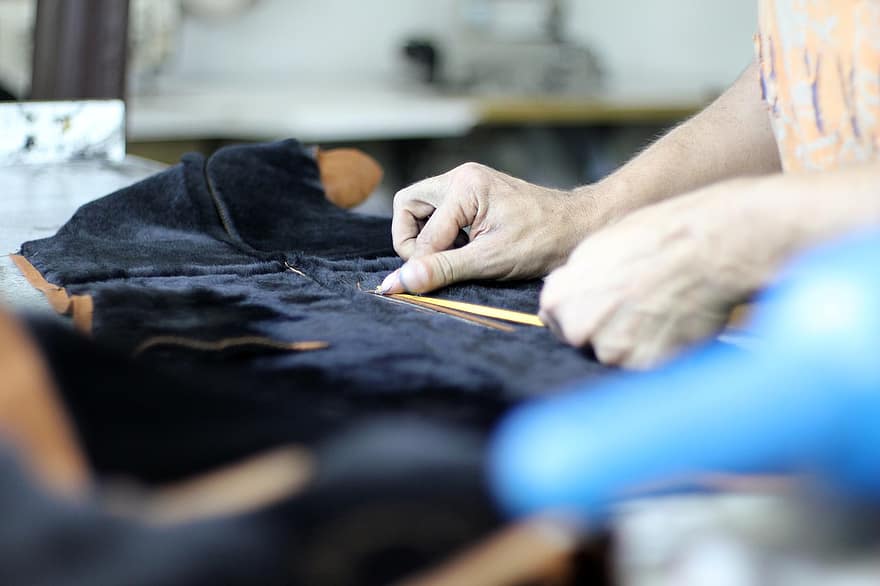Uniforms for the Belgian police, army and post office are produced in Belgian-owned Romanian factories in poor and abusive work conditions, a new NGO report shows.
Interviews conducted in 2018 with workers of two factories owned by Belgian textile companies Seyntex and Sioen revealed that employees were underpaid and subject to illegal and abusive labour practices.
Both factories produce uniforms and gear for the Belgian Army, the Belgian police forces and for employees of Bpost, Belgium's postal office, as well as other kinds of professional garments and uniforms.
Related News
- EU worsens for gender equality, says Eurostat
- Coronavirus will change global economy profoundly, says ECB
- Gender equality: Belgium neglects commitments to pay transparency
Workers in the Motexco factory, owned by Seyntex via their family company Seynaeve Textile Holding, told researchers with labour rights NGO We Social Movements that, despite working relentlessly "they barely had enough to survive."
Data from 2018 showed that the employees' gross monthly wages were of 1,900 Romanian Leus, the official minimum wage, which amounts to around €240 net.
NGO researchers these wages were not enough for workers to make ends meet, with many staying they also worked in farming on top of their factory jobs.
"When I am done with my work in the factory, I begin working on my land. Every day is the same. We work non-stop, without a break, and we barely have enough to survive," one factory worker said.
Staff also told researchers that managers at Motexco pressured them to meet production quotas by withholding benefits they were entitled to by law, such as meal vouchers.
"Each month, we wonder how many meal vouchers we will get. Last month, staff on my production line got 5 vouchers. We were told that we did not meet the production quota, but who can? It's impossible, we work 8 hours a day, without a break, and, at the end of the month, we are treated badly," one employee said in the report.
Other factory workers at Motexcos said that, throughout a period of six months, most had only received between a quarter or half of the 22 meal vouchers they were entitled to.
In the Siorom factory, owned by "world-leading" Belgian textile producer Sioen, workers also say that their minimum wage salaries are not enough to live with, despite claims by the company that it offered workers "superior working conditions" with the stated aim to elevate working standards in developing countries.
"The fact of offering working conditions superior to the average has the effect of pushing up the overall level, not only of pay, but also of health and safety in these developing countries," Sioen wrote on their website.
The NGO's report found that a majority of workers at the Siorom factory had to get loans just to be able to pay for food and to cover their living expenses.
"Workers who live in the city spend about 40% of their salary on rent," the report found. "After that, they have anywhere from €13 to €24 left for groceries, their children's education or medical expenses."
Researchers also found Siorom's employees worked in an old, communist-era factory building with improper ventilation which could get very warm in the summer months.
"Employees said that they have health issues because of the lack of oxygen inside the factory. In the summer, workers faint due to the heat," the report said.
On their websites, both Belgian companies say that they comply with the "strictest" rules to guarantee employee safety and customer satisfaction.
"Our manufacturing plants in Eastern Europe and the Far East comply with the strictest rules to ensure the safety of our people, protect the environment and satisfy our customers," an online statement by Seyntex, which owns production and assembly factories in Belgium, Romania and Bangladesh, says.
The report by We Social Workers was produced to shed a light on the working conditions of people whose labour is outsourced by companies in Belgium and elsewhere in Western Europe, many of which exploit labour regulations to label and market products that are "made in Europe."
"Consumers, political decision-makers and businesses think, wrongly and too often, that clothes that are made in Europe are manufactured in good working conditions," the NGO wrote.
Several reports for transparency in fashion goods manufacturing "painted a different picture" of labour conditions in manufacturing countries which were members of the European Union.
"In some of them, such as in Romania and Bulgaria, the chasm between the minimum wage and the minimum livable wage is the same as in Bangladesh."
Gabriela Galindo
The Brussels Times

